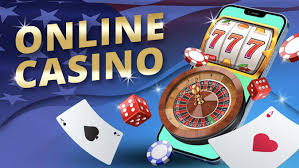
Table of Contents
The Phenomenon of Flappy Bird: A Gaming Legacy
Launched in 2013, Flappy Bird quickly ascended from a simple mobile game into a worldwide sensation. Developed by Vietnamese programmer Dong Nguyen, this unassuming game combined simplicity, challenge, and a dose of nostalgia, captivating players around the globe. Flappy Bird lean more about its impact and legacy.
The Mechanics Behind Flappy Bird
At its core, Flappy Bird is a side-scrolling game where players control a bird that must navigate through pipes. The mechanics are deceptively simple: tapping the screen gives the bird a burst of upward momentum while gravity pulls it down. This single mechanic creates an effortlessly engaging experience that promises both frustration and excitement. The game’s design encourages players to try again and again after failures, leading to a strong “just one more try” mentality.
Visual and Audio Aesthetics
Flappy Bird features a minimalist aesthetic, reminiscent of classic 8-bit graphics. The bird itself, with its cartoonish style, is easily recognizable, while the background sets a vibrant yet calming tone. Accompanying the visuals is a catchy soundtrack that reminds players of old-school video games, enhancing the nostalgic element that makes Flappy Bird so appealing to an array of audiences.

The Meteoric Rise to Fame
In early 2014, Flappy Bird became a viral sensation. Its climb to the top of the App Store charts was meteoric and largely attributed to word-of-mouth promotion on social media. Many users shared their high scores and gameplay experiences online, contributing to a wider discussion and engagement that fueled its popularity. Additionally, the game’s high level of difficulty led to endless sharing of frustration and humorous moments, making it a social phenomenon.
The Impact on Mobile Gaming Culture
Flappy Bird’s sudden success had a profound impact on mobile gaming. It highlighted the potential of indie developers to create massively popular games without the backing of large companies. This led to a rise in similar games that emulated its simple mechanics and addictive nature. However, the immense success also demonstrated the volatility of mobile gaming trends, where a hit game can quickly become a part of history.
The Controversy and Withdrawal
Despite its success, Dong Nguyen’s relationship with Flappy Bird was complex. Within just a few months of its release, he pulled the game from app stores, citing concerns over its addictive nature. This led to an outcry from fans, with many expressing their dismay over the game’s removal. The controversy sparked discussions about mobile addiction, game design ethics, and the responsibilities of developers toward their users.

Legacy of Flappy Bird
Even years after its removal, Flappy Bird’s impact on the gaming industry remains significant. It spawned numerous clones and inspired a generation of mobile gamers and developers. The game’s legacy lies not just in its gameplay but in how it shifted perceptions about mobile games – proving that engaging gameplay doesn’t always require intricate graphics or deep narratives.
Conclusion
Flappy Bird is more than just a game; it’s a representation of cultural phenomena in the digital age. Its blend of simplicity, challenge, and nostalgia resonated with millions, creating a lasting imprint on the world of mobile gaming. The story of Flappy Bird is a lesson in the unpredictable nature of digital fame and the complex relationship between developers, players, and the gaming industry as a whole.
Reflection and Lessons Learned
As the gaming landscape continues to evolve, Flappy Bird remains a case study for aspiring developers. It teaches that gameplay innovation can come from the simplest ideas and that sometimes, less is more. The journey of Flappy Bird reinforces the idea that gaming is not just about high-end graphics or deep storylines, but is also about creating engaging experiences that resonate with players on a personal level. With the right blend of creativity and simplicity, new innovations in gaming can arise, reminding us that the next big thing could be just a tap away.
